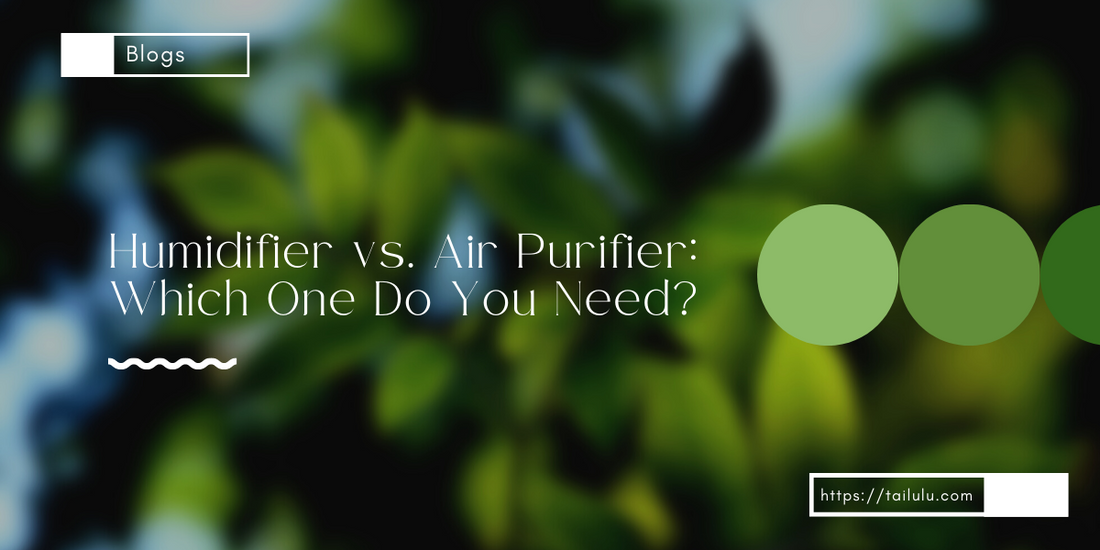Indoor air quality is important for our health and comfort, especially since we spend a lot of time indoors. Two devices that can help improve indoor air quality are humidifiers and air purifiers. But which one do you need? In this article, we'll explore the differences between humidifiers and air purifiers, their benefits, and how to determine which one is right for you.
Humidifiers
Humidifiers are devices that add moisture to the air. They are often used during the winter months when the air can become dry due to heating systems. Humidifiers can also be useful in dry climates or for individuals who experience dry skin, nosebleeds, or respiratory issues due to dry air.
There are several types of humidifiers, including:
-
Cool mist humidifiers: These use a fan to evaporate water into the air, creating a cool mist.
-
Warm mist humidifiers: These use a heating element to boil water, creating steam that is released into the air.
-
Ultrasonic humidifiers: These use high-frequency vibrations to turn water into a fine mist that is released into the air.
The benefits of using a humidifier include:
-
Relieving dry skin, nosebleeds, and sore throats.
-
Alleviating respiratory symptoms, such as coughing and congestion.
-
Improving sleep quality.
-
Reducing the risk of airborne viruses and bacteria.
-
Preserving wood furniture and floors, which can become dry and crack without proper moisture levels.
However, it's important to note that if you use a humidifier, you need to be diligent about cleaning it regularly. Humidifiers can be a breeding ground for bacteria and mold if not maintained properly.
Air Purifiers
Air purifiers are devices that remove pollutants and irritants from the air. They are particularly useful for individuals who suffer from allergies or asthma, as they can help reduce the amount of allergens and other irritants in the air.
There are several types of air purifiers, including:
-
HEPA filters: These capture particles as small as 0.3 microns, including pollen, dust, and pet dander.
-
Carbon filters: These are effective at removing odors and volatile organic compounds (VOCs) from the air.
-
UV-C light filters: These use ultraviolet light to kill bacteria and viruses.
The benefits of using an air purifier include:
-
Reducing the amount of allergens in the air, which can alleviate allergy symptoms.
-
Reducing the risk of respiratory infections by removing viruses and bacteria from the air.
-
Improving sleep quality by creating a cleaner air environment.
-
Reducing unpleasant odors in the home.
-
Removing harmful chemicals and pollutants from the air.
It's important to note that air purifiers require regular maintenance to work effectively. Most air purifiers come with replaceable filters that need to be changed periodically to ensure they are capturing pollutants and irritants effectively.
Humidifiers vs. Air Purifiers: Which One Do You Need?
So, which device do you need? The answer depends on your individual needs and the climate in which you live.
If you live in a dry climate or experience dry air during the winter months, a humidifier may be the best choice for you. Humidifiers can add moisture to the air, which can alleviate dry skin, nosebleeds, and respiratory symptoms.
However, if you suffer from allergies or respiratory problems, an air purifier may be the better choice. Air purifiers can help remove allergens and other irritants from the air, which can alleviate allergy symptoms and reduce the risk of respiratory infections.

